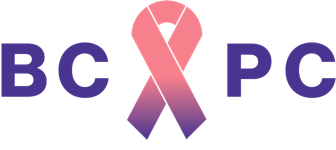The wall of Kate M's office is lined with equestrian ribbons and awards. As a little girl, Kate loved horses. She would go riding whenever she had the chance, but she never had a horse of her own. So when Kate graduated from university, that was the first purchase she made. She’s been riding competitively ever since. Nothing can keep Kate from her horse, not even breast cancer.
Get Your Annual Mammogram!
Kate was getting her yearly mammogram when her radiologist discovered she had breast cancer. Kate says:
“I’m literally the poster child of why people should get annual mammograms because that’s how we found it. We found it super early. And literally, not even 12 months later, between June and February, I’m done. It can make a huge difference, a huge difference.”
No one wants to think about the possibility of getting breast cancer, but that’s no excuse to avoid an annual check-up. For Kate, finding her cancer early may have saved her life.
After her diagnosis, Kate started her treatment right away. Her treatment plan would start with chemotherapy, then surgery, and would end with radiation. She didn’t want to delay the start of her treatment, but she also made sure to talk to her entire care team before making any decisions. She recommends that other patients do the same. Having a thorough understanding of not only what the treatment is, but also why it’s right for you, allowed Kate to take on her cancer with confidence.
Getting Back on Her Horse
Every breast cancer patient has their own way of coping with their diagnosis and treatment. For Kate, coping meant maintains as much normalcy, and positivity, as she could. She says:
“I just knew myself well enough to know that if I started going down the dark hole, it was going to be bad. So I just refused to go that way.”
Kate realized early on that cancer did not have to take over her life. To an extent, Kate had control over how she felt, both emotionally and physically. Because maintaining some sense of normalcy was important to her, Kate made a few goals for herself. The first goal was to continue working throughout her treatment. And she achieved that goal. Kate only took a total of three days off—two days for chemo and one day for surgery. She was glad to be able to continue working because it allowed her to get her mind off her treatment.
Her second goal was to continue riding her horse every weekend. This goal was more difficult. She says:
“I wanted to ride my horse every week like normal. And so after every chemo—chemo was the hardest—every time I had a treatment, I just drank all my fluids. I got out. I exercised. I did everything. So by the time it was the weekend, I felt good enough to ride.”
Working and setting goals for herself allowed Kate to maintain that sense of normalcy. And focusing on her physical ability to ride her horse helped her to feel better emotionally.
Not only did Kate find support in work and her horse, but she also found it in family and friends. Though she isn’t a huge fan of social media, it allowed Kate to meet other breast cancer patients. Now, those people are good friends.
Additionally, a few months after her own diagnosis, Kate connected with another breast cancer patient who had almost the same cancer as Kate. The two were able to confide in each other about things that doctors and family do not understand because they haven’t been through it themselves. As Kate puts it:
“The doctors can answer questions to a certain extent, but they don’t really know how you really felt.”
Kate was grateful to have someone she could talk to about aspects of cancer that may have been uncomfortable for her husband or her family. With someone who’s been through treatment and understands what it’s like, it’s easier to talk about the more personal, and specific parts of treatment and the symptoms that come with it.
Counseling Isn’t Just About You
When Kate was approached by a counselor, she was hesitant. She didn’t think she needed counseling. She was happy and felt good about her treatment plan. Even so, she decided to try just one session.
The counselor ended up helping Kate more than she ever expected. Most importantly, the counselor helped prepare Kate for how to talk to her family and friends about her cancer. She was also able to prepare for the unpredictable range of reactions that people might have in response to Kate’s diagnosis.
Kate remembers talking to someone about her cancer and their reaction was, to spare the details, unusual and a bit abrasive. But because Kate had talked about this kind of reaction with her counselor, instead of being offended by the person’s reaction, she was able to laugh it off.
Post-Treatment Positivity
Kate ended her treatment fairly recently. She was diagnosed in the summer of 2019 and completed radiation at the start of 2020. Because her treatment was so recent, she still finds herself experiences things like chemo brain. She says:
“It can be kind of embarrassing at work, but I just laugh it off. All my people know, and they’ll just say, “Oh, chemo brain again!” Yeah, it’s tough. And, I mean, I can’t do anything about it. So what do you do? You just move forward.”
There are times when Kate can’t remember a word she would know, but she says that in comparison to chemotherapy, surgery, and radiation, chemo brain is nothing and it gets better every day.
Her advice for new breast cancer patients is simple:
“Drink the 100 oz of water a day, eat healthily, do as much as you can to keep your normal schedule and activity level, and be positive.”
A year after her diagnosis, Kate is back to her normal life. And any changes in her day-to-day routine aren’t a result of her cancer or her chemo brain, but a result of COVID.
To hear more stories like Kate’s and join the conversation around breast cancer, join BCPC. Explore discussions, topics, listen to expert insights from trusted medical professionals, and share your own experiences. Your story is someone else’s support.



